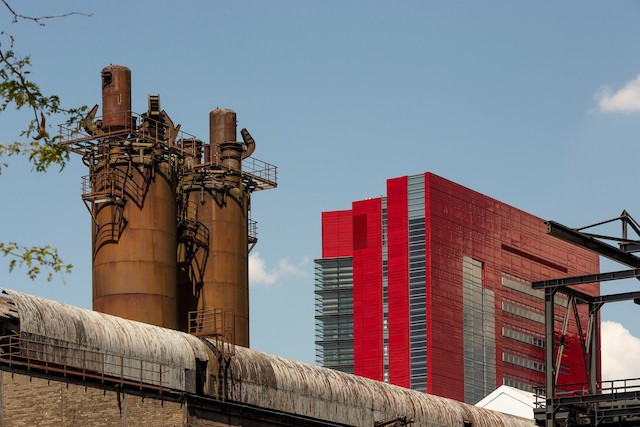“We have lived through an overwhelming year, said JLL Luxembourg director Angélique Sabron presenting the company’s results last week. But despite the pandemic’s shock to the economy, real estate performance was “good, even very good at local level,” she said.
At take-up of 162,203m2, the office market underperformed in 2020 compared to the year before, when take-up reached 260,000m2. Nonetheless, 2020 was still a record year, with an occupation rate of 327,374m2.
“It’s a sector where a lot of discussions are still ongoing, with the organisation shaken up because of the intensive use of teleworking,” said Lotfi Behlouli, director of office real estate at JLL Luxembourg.
Much of 2020 take-up was due to contracts signed prior to the crisis, Behlouli said. “This year was also marked by a majority of small transactions, those of not more than 5,000m2,” he said.
“2020 is a year marked by uncertainty and lack of visibility. This state of affairs slows down major decisions, with office property remaining one of the most important financial positions for companies alongside payroll.” Behlouli said. “Without a clear view of the future, companies prefer to take the time for reflection and discussion.”
Luxembourg’s public sector accounted for 26% of office occupancy, followed by the European institutions and the financial sector.
Rents were relatively stable at around €51/m2 monthly in the Luxembourg City centre compared to €24/m2/month in Esch-Belval. Vacancy was at 4.2% in 2020, slightly higher than in 2019, when it was at 3.2%, but still more favourable than in many other countries, Behlouli said.
For 2021, JLL expects companies to search for more personal office space, hybrid solutions and a desire to “rent better”, which does not mean renting less. The crisis could see companies opt for more hubs closer to the borders, buildings with a lower carbon footprint and taking worker health and wellbeing into greater account, JLL said.
Rents higher, smaller properties
The residential real estate market was little impacted by the pandemic, with prices high and available property insufficient compared to demand.
Starting 2022, the new housing pact between communes and the government should help boost the amount of affordable housing, JLL said.
But pending these reforms, rents continue rising (€1,550/month on average nationally) while properties become smaller (€49m2 on average in Luxembourg City and €72m2 in Diekirch).
Average monthly rent in Luxembourg City is €34.5/m2, with purchase prices on average €11,035/m2.
Luxembourg City has the highest potential for residential development, JLL said, followed by the cantons of Esch, Capellen, Remich and Grevenmacher in the top five. Diekirch was a new entry in seventh place.
JLL expects more houses in the capital to be turned into apartments, which will make the market for bigger family homes even more difficult.
Investors meanwhile are searching for projects with a mix of residential, commercial and office space, and good access to infrastructure. Student housing, shared housing and senior housing is, however, also becoming more interesting, the real estate company said.
European investor interest
“Investors remain positioned in the office market and core transactions remain in the lead,” said Vincent von Brée, head of capital markets Luxembourg. The volume of investments went down 38% in 2020 compared to 2019, but the number of transactions remained high at 17, compared to a ten-year average of 15. But there were no mega-transactions worth more than €200m.
Because of pandemic travel restrictions, Korean investors were less visible on the market in 2020 than in previous years. French and German investment funds dominated the market.
“Luxembourg remains popular with investors and the confirmation of its triple AAA status by international credit rating agencies reassures foreign investors,” said Von Bree. With a return on investments of 3.9%, Luxembourg also outpaces cities like Paris or Berlin, who peak at 2.5%.
Among the biggest transactions in the last year was the acquisition of the Laccolith building in the Cloche d’Or by Primonial, as well as the Charlotte building by GLL Real Estate Partners.
"We have not had any fundamental doubts or abrupt termination of transactions during this year," said Von Brée. "The outlook should remain average for the past five years, certainly with fewer mega deals, a confirmed appetite for the office sector and a growing interest in residential.”
This article was first published in French on paperjam.lu and has been translated and edited for Delano.
